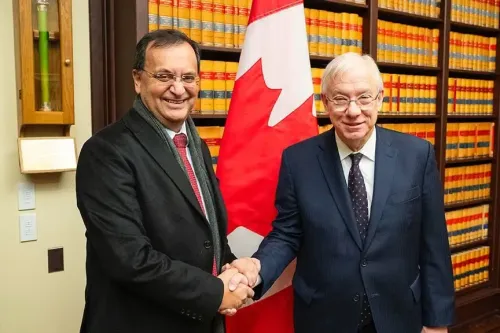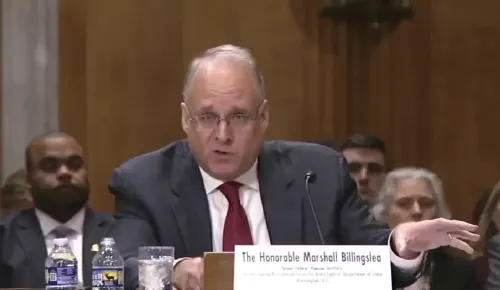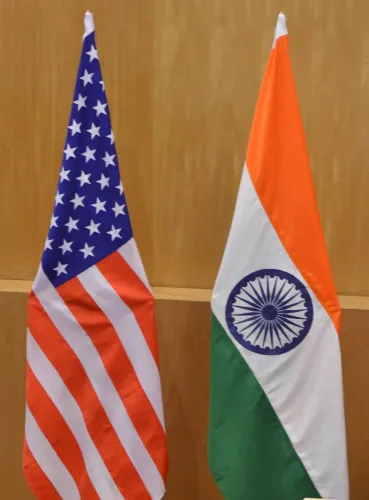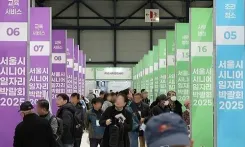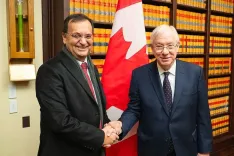Why Did the Bangladesh Government Ban Sheikh Hasina's Awami League?
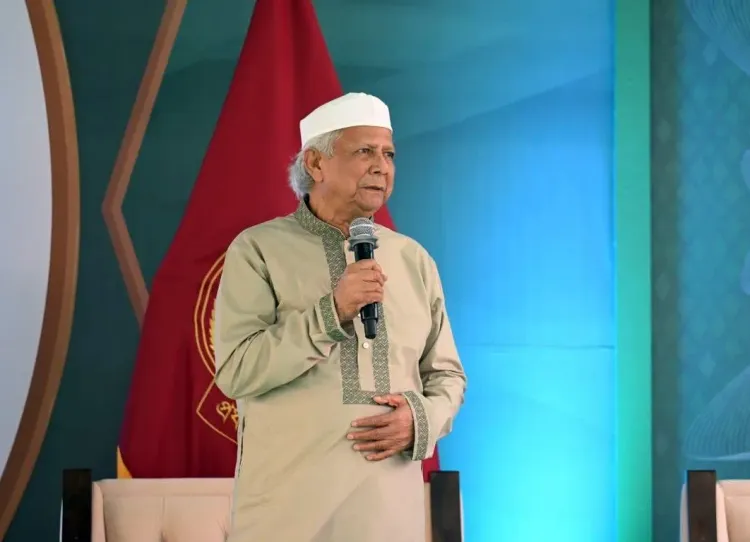
Synopsis
Key Takeaways
- Interim government bans Awami League activities.
- Action taken under Anti-Terrorism Act.
- Trial pending in International Crimes Tribunal.
- Significant implications for upcoming elections.
- Public protests highlight divided opinions.
Dhaka, May 12 (NationPress) In a significant move, the interim government of Bangladesh, led by Muhammad Yunus, has released a gazette notification that prohibits all operations of the Awami League party, previously headed by former Prime Minister Sheikh Hasina, along with its affiliated entities. This ban is enforced under the Anti-Terrorism Act until the party and its leaders undergo trial in the International Crimes Tribunal (ICT) of Bangladesh.
The announcement was made by the Public Security Division of the Home Ministry, with Joint Secretary Ziauddin Ahmed affirming the news.
All forms of activities are included in this ban, such as publications, media campaigns, online presence, meetings, gatherings, and conferences.
According to the notification, the government possesses substantial evidence indicating that the Awami League and its associated organizations are implicated in numerous criminal activities aimed at destabilizing the state and engaging in illegal actions akin to terrorist groups, thereby instilling fear among the populace.
The Bangladesh Chhatra League, the student faction of the Awami League, faced a ban in October 2024 and was categorized as a terrorist organization. Other associated groups affected by this ban include the Bangladesh Mahila League, Bangladesh Awami Jubo League, Awami Swecchashebok League, Awami Ainjibee Parishad, Bangladesh Tanti League, and the Swadhinata Chikitsak Parishad.
Recently, the interim government enacted an ordinance revising the Anti-Terrorism Act, introducing a new clause that prohibits individuals or entities engaged in violence and terrorism.
Previously, the act allowed the government to list individuals or organizations involved in terrorist activities based on reasonable grounds, but did not include provisions for prohibiting activities. The recent amendment empowers the government to impose activity bans on any entity, as reported by Prothom Alo, a leading Bangladeshi daily.
Chief Election Commissioner AMM Nasir Uddin stated that the Election Commission will determine the status of the Awami League's registration once the official gazette is received.
“Decisions cannot be made based on media reports. We will convene and decide once the notification is issued,” CEC remarked concerning the potential cancellation of the Awami League’s registration.
Reports indicate that last week, various student groups, radical Islamist parties, and leaders from the newly formed National Citizen Party protested, initially staging a sit-in outside the Chief Advisor's residence and later gathering at Shahbag, Dhaka, demanding an immediate ban on the Awami League.
Analysts view these developments as a continuation of the political vendetta by the Yunus-led interim government against former PM Hasina and her backers, aiming to prevent the Awami League from participating in the upcoming national elections.
The abrupt removal of Hasina last August was perceived globally as a significant setback for democracy in Bangladesh. The interim government has also faced substantial criticism for offering safe haven to radical and extremist Islamic groups.


